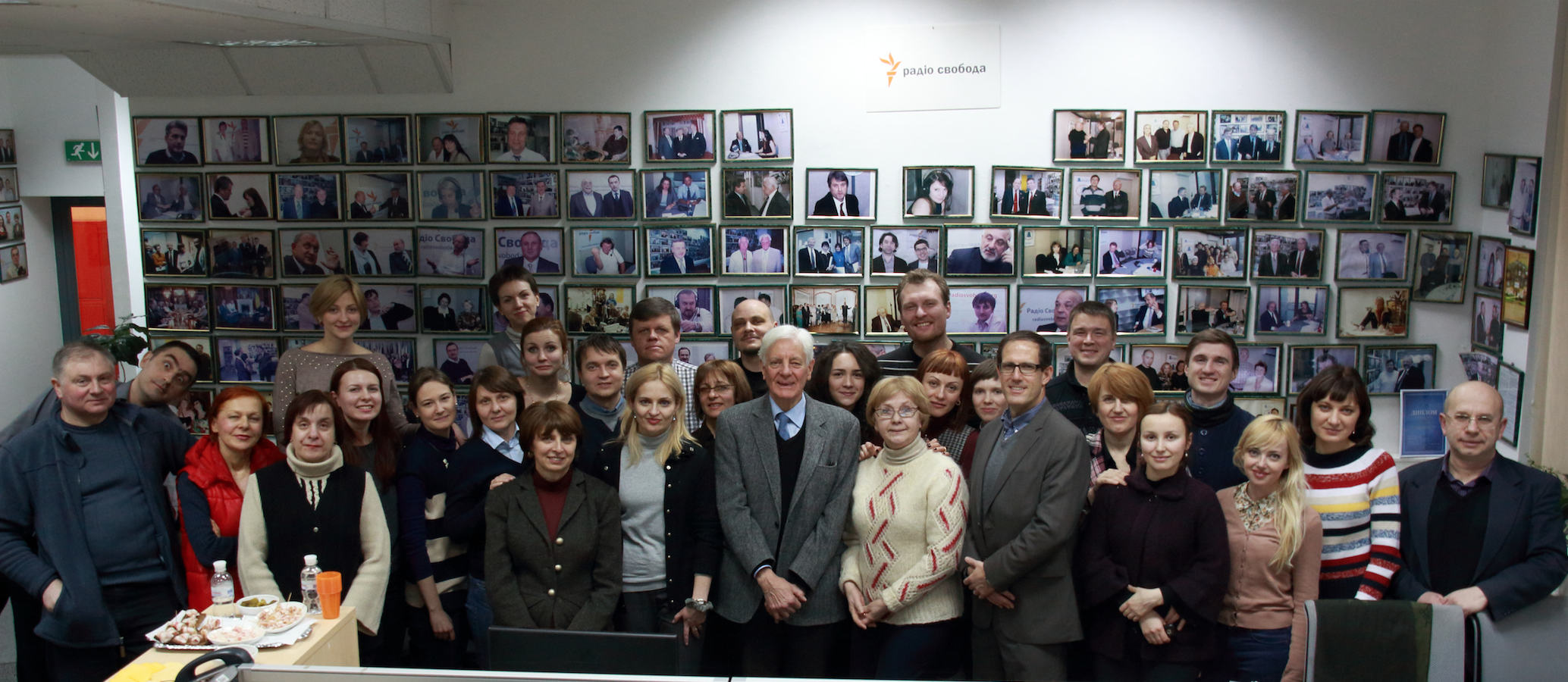Armstrong, Klose Visit Ukraine, Renew Calls To Protect Journalists


One week after dozens of journalists were attacked by police in and around Kyiv’s Maidan Square, RFE/RL President and CEO Kevin Klose and Broadcasting Board of Governors (BBG) member Matthew Armstrong arrived in the Ukrainian capital to meet with U.S. international media journalists, to denounce the violence and to press Ukrainian authorities to honor their international obligations to respect media freedom and ensure basic rights and protections for journalists.
Armstrong and Klose met with reporters at RFE/RL’s Kyiv bureau to laud their courage and commitment to reporting on the public demonstrations, popularly dubbed “Euromaidan,” that have engulfed public spaces for two months. On January 20, RFE/RL Ukrainian Service reporter Dmytro Barkar and cameraman Ihor Iskhakov suffered head injuries from beatings by Berkut police fists and batons.
“A free society does not beat professional journalists while they are performing their duties,” commented Klose. He also expressed dismay at reports that many journalists covering demonstrations in Kyiv are declining to wear protective gear emblazoned with the word “press” on the belief that such identifiers attract attackers rather than deter them.
Attacks on independent media have included physical assault, attempted intimidation, and harassment. VOA Ukrainian Service TV reporter, Ruslan Deynychenko, has been the victim of repeated attempts at intimidation directed at family members following his coverage of the “Automaidan” motorcade protest aimed at President Viktor Yanukovych’s residence at Mezhyhiria outside of Kyiv.
Veteran RFE/RL journalist Vitaliy Portnikov has been the target of a smear campaign intended to discredit him. Portnikov’s Kyiv apartment was picketed on January 9 by a crowd of approximately 50 people with threatening posters and Ukrainian flags who accused him of “immoral behavior.”
Armstrong, representing the governing board that oversees RFE/RL and VOA, called the attacks by Ukrainian law enforcement officials “reprehensible” and said, “The BBG condemns in the strongest terms violence targeting journalists in Ukraine. Our support is unwavering for our RFE/RL and VOA colleagues in the field. We urge that perpetrators of violence against them, as well as those who ordered such behavior, be held accountable for their actions.”
Klose and Armstrong met with U.S. Ambassador to Ukraine Geoffrey Pyatt, who called for investigations of attacks on journalists and urged police and security forces, “to fulfill their professional duty to respect and secure the right of journalists to work safely.”
Pyatt welcomed the vote in the Ukrainian Parliament to repeal recently enacted legislation restricting freedoms of speech and assembly, saying it helped “restore some space for a peaceful resolution of the current situation.” However, Presidential Yanukovych must sign the repeal bill for it to become law.
According to the Kyiv-based Institute of Mass Information (IMI), 71 journalists have been injured while covering the violence since January 19. On January 20 Reporters Without Borders noted that many journalists were injured by stun grenades, rubber bullets or other non-lethal projectiles and fourteen journalists report being deliberately targeted by the security forces.

